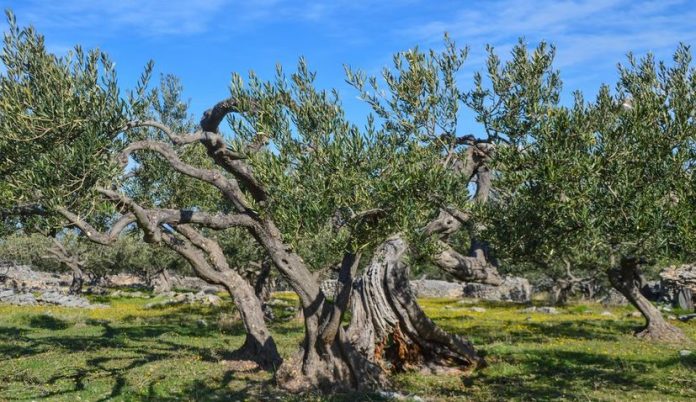Trees That Remember
There are trees that shade you — and trees that know your name.
On the island of Brač, the olive trees are more than just part of the landscape. They are elders. Witnesses. Storytellers of stone and silence.
I’ve often wandered through these groves, especially in the golden hush of afternoon. The scent of wild herbs clings to the air — rosemary, immortelle, and sage — while the cicadas sing like ticking clocks. But time doesn’t tick here. It folds.
Some of these trees are over a thousand years old. Imagine that. Their roots have gripped this rocky island longer than most nations have existed. They’ve seen pirates, monks, empires, saints. They’ve watched wars come and go, and they’ve outlived the ones who planted them.
Sometimes I think of them as Ents, Tolkien’s wise tree-shepherds from Middle-earth. Their branches speak in creaks and sighs, and though their voices are slow, I believe they talk to one another. In the quiet of these groves, you get the sense that the trees are keeping council — whispering about the changes in the wind, the stories buried in the soil, and the curious humans who walk among them.
A Legacy Rooted in Antiquity
Olive cultivation on Brač dates back to antiquity. The Greeks and Romans planted the first groves here, recognizing the island’s limestone terrain and Mediterranean sun as perfect for olives. Over time, the people of Brač turned the olive into more than just a crop — it became a companion to life itself. Every household had a few trees, and many had groves. Olive oil wasn’t just used for cooking; it lit the lamps, blessed the sacraments, soothed wounds, and honored the dead.
These trees, like Ents, have watched over us from the very beginning of our life on the islands. Theirs is a patience we no longer understand. While we measure seasons and news cycles, they measure eras. And yet, they still give: shade, fruit, peace.
The Olive Oil Museum in Škrip
One of the best places to understand this legacy is the Olive Oil Museum in Škrip, the oldest settlement on the island. Tucked into a stone house that once held an active oil press, the museum still smells faintly of crushed olives and cold-pressed life. Inside, you’ll find wooden beams blackened by time, iron levers worn smooth by generations of hands, and stories passed down like heirlooms. Here, olive oil is not just a product — it’s a witness.
A Family Tradition: The Harvats of Brač
I remember one moment clearly: a lunch in a dry-stone field near Škrip. We sat on a low wall built by someone centuries ago. My friend poured us oil straight from his family’s press — green-gold and peppery. We dipped bread in it and said little. You don’t need many words when the oil speaks of labor, lineage, and land. That family, the Harvat family, has been producing olive oil for generations. They carry the tradition with quiet pride, still harvesting by hand, still pressing with care.
What Makes It Extra Virgin?
And the oil? It’s not just any oil. It’s extra virgin, a term that often gets thrown around but is steeped in meaning. To be called extra virgin, olive oil must be made only from the first cold pressing, without the use of chemicals or heat. It must have low acidity and retain its natural aroma, flavor, and nutrients. It’s the purest essence of the fruit — uncorrupted, unfiltered by time or technique. It’s a taste of the tree itself.
It is said that extra virgin olive oil holds the soul of the tree. And when it comes from a thousand-year-old olive, that soul runs deep.
Wisdom in the Wind
When I walk beneath these twisted limbs, I don’t just feel calm. I feel humbled. These trees aren’t trying to be anything. They just are. They bend in the wind, stretch toward the sun, and carry on — wrinkled, wise, and quietly alive.
They remind me that storytelling doesn’t always require words. Sometimes it lives in roots and bark, in the spaces between wind gusts, in the crackle of leaves at dusk. The trees are telling their tale — not to be heard quickly, but to be understood slowly.
More Than Just Beautiful
And that’s the thing about Brač. The land isn’t just beautiful — it remembers. It remembers every stone wall built without mortar, every back bent in the harvest, every meal shared in silence. If you sit still long enough, under an old olive tree, it might just share something with you too.
Because here, in these groves, you’re not just passing through.
You’re passing into something older than history, and maybe deeper than time itself.

